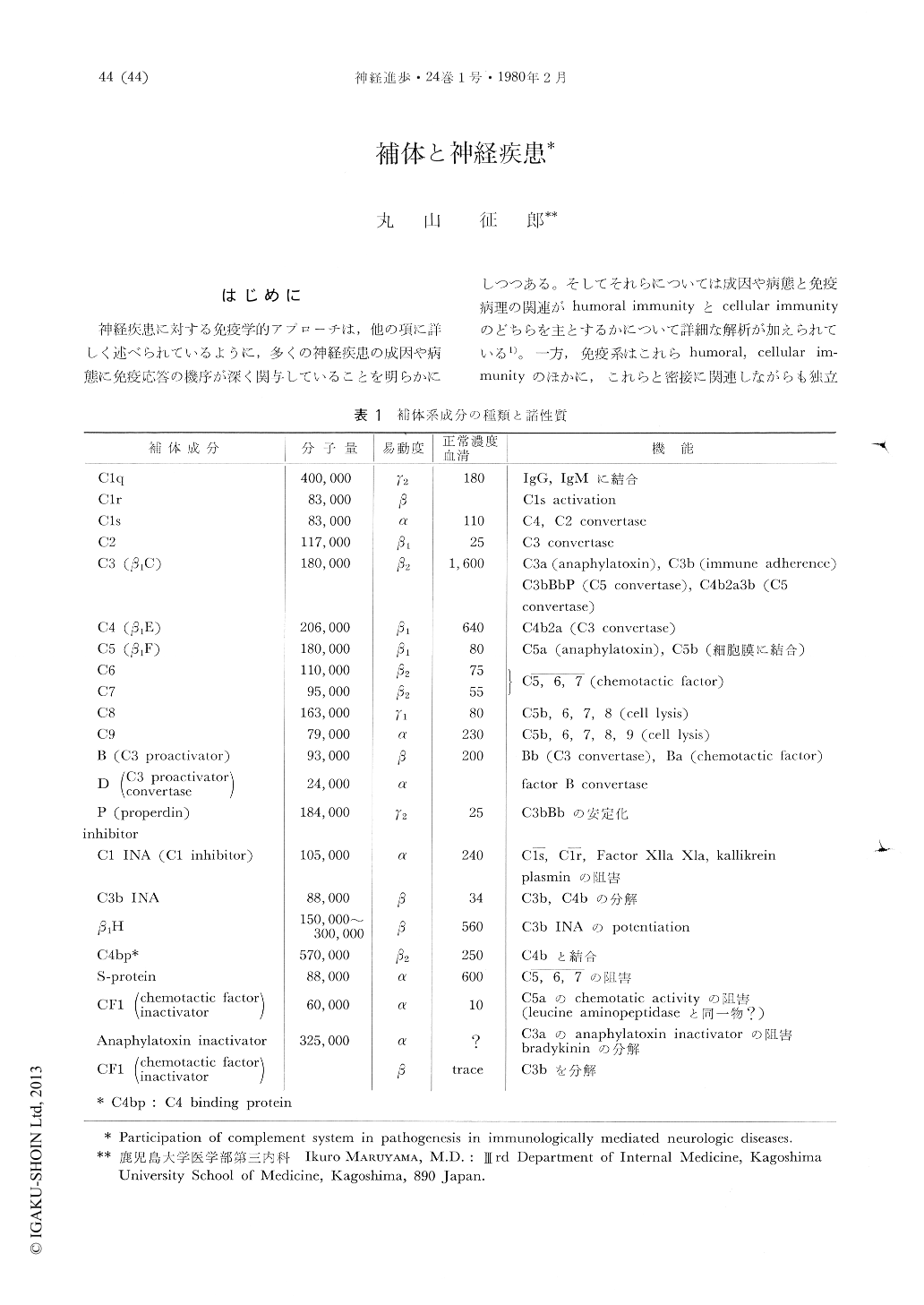Japanese
English
- 有料閲覧
- Abstract 文献概要
- 1ページ目 Look Inside
はじめに
神経疾患に対する免疫学的アプローチは,他の項に詳しく述べられているように,多くの神経疾患の成因や病態に免疫応答の機序が深く関与していることを明らかにしつつある。そしてそれらについては成因や病態と免疫病理の関連がhumoral immunityとcellular immunityのどちらを主とするかについて詳細な解析が加えられている1)。一方,免疫系はこれらhumoral,cellular immunityのほかに,これらと密接に関連しながらも独立した系をなす補体系で構成されている。この補体系は免疫応答の実験的effectorで,そのalternative pathwayではいち早く異物に対し反応するほか,classical pathwayでは抗原抗体反応の生物学的効果を血管透過性亢進,白血球遊走,平滑筋収縮,細胞融解などの形で伝達している。さらに補体系は凝固線溶系,kallikrein-kinin系とも複雑に連鎖しつつ反応を空間的に広げ,生体の防御により好適な内部環境をつくる役割を果たしているものと考えられる。しかしこの補体系の各種疾患への関与の様式については,腎疾患ほか一部を除き,解明が遅れており,免疫学的アプローチといっても,主流はcellularまたはhumoral immunityであった。
It has been established that immune process has some roles in pathogenesis of such neurological diseases as myasthenia gravis, multiple sclerosis and nervous system involvement in collagen diseases. Cellular or humoral immunity appears to play the major role in immunopathophysiological process of these diseases.
Complement system is one of a self-assembling system which constitutes the primary humoral biological mediator of antigen-antibody reactions.

Copyright © 1980, Igaku-Shoin Ltd. All rights reserved.


